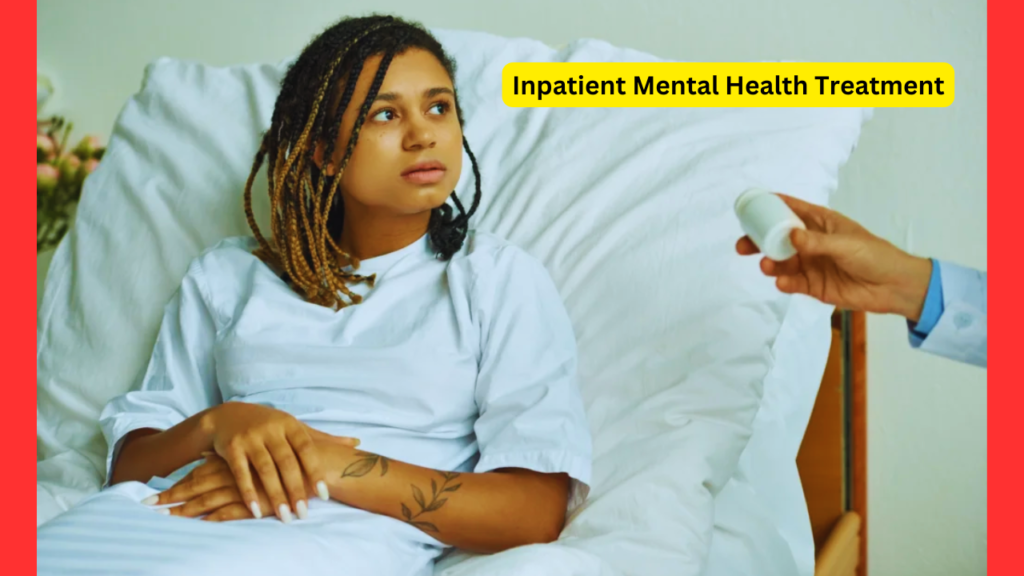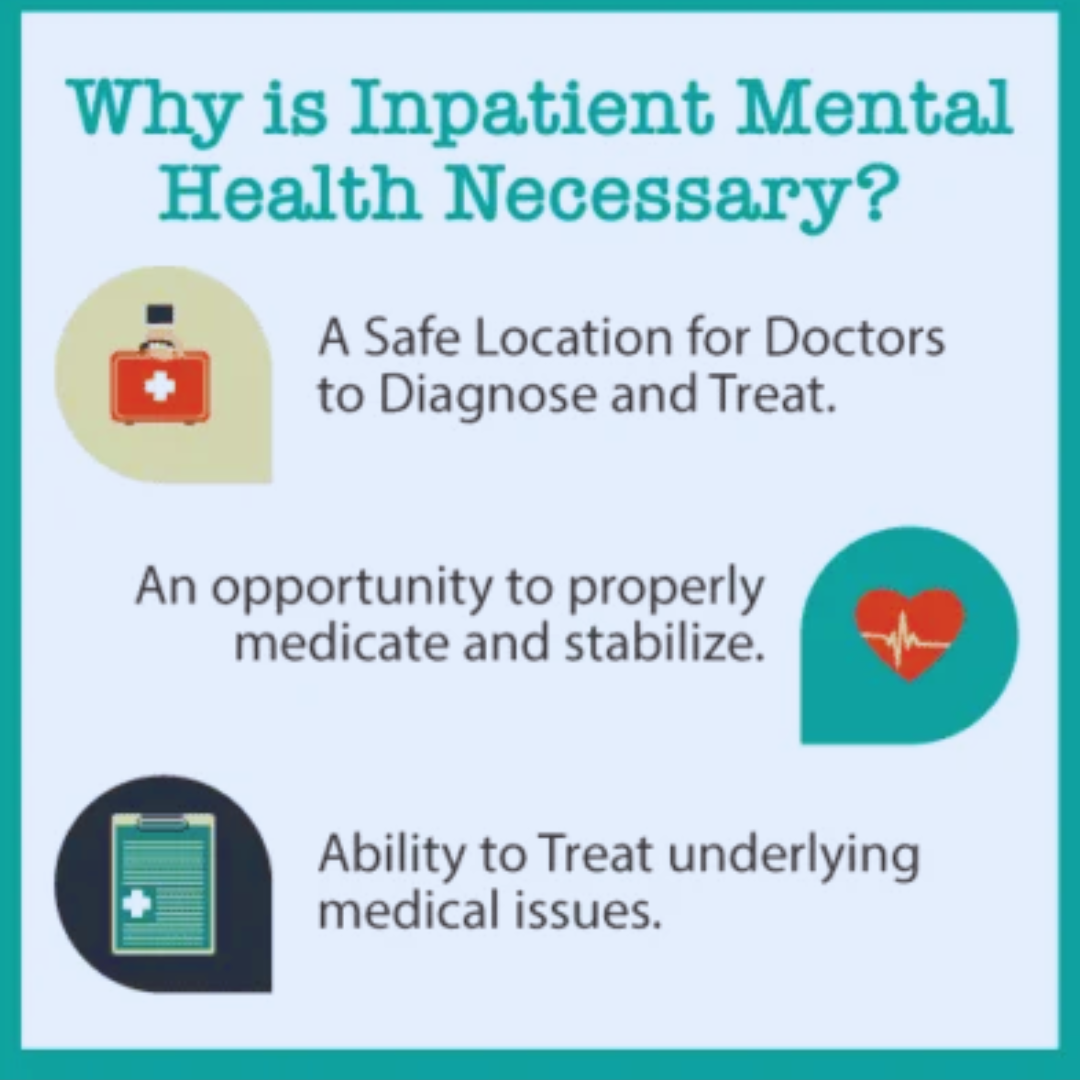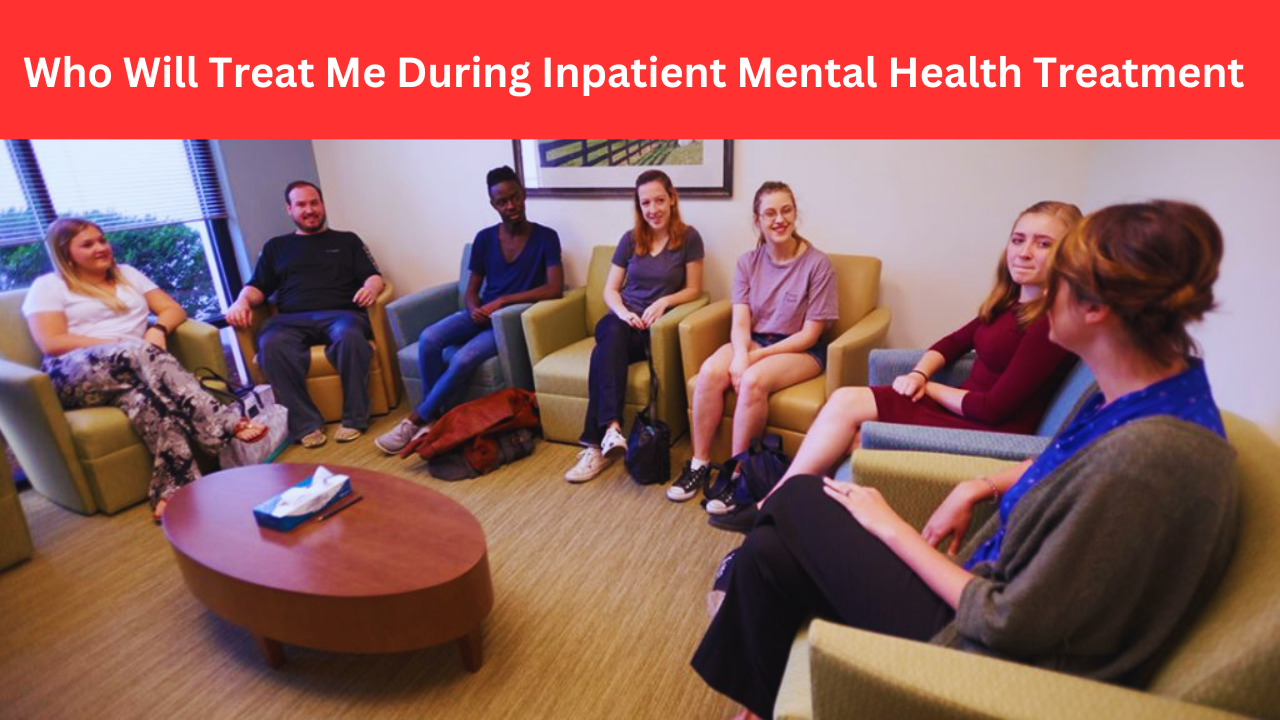
Mental health is an important part of our well-being, and sometimes we require extra support to manage it. While many mental health concerns can be treated with outpatient therapy, more severe or long-lasting symptoms may require a higher level of care.
If you are facing a mental health issue, staying in a mental healthcare center for a period can provide the support and treatment needed to keep you secure and aid you in feeling better. Receiving mental health care in a hospital setting is known as inpatient treatment. This article will explain everything you need to know about inpatient mental health treatment.
Introduction to Inpatient Mental Health Treatment

Inpatient mental health treatment involves staying at a treatment facility for a set period to receive focused support. The length of stay can range from a couple of days to several weeks, depending on individual needs. During this time, individuals receive 24/7 medical and emotional care, follow a structured daily routine, and take part in various therapies.
The goal is to create a supportive and safe space for healing. This type of treatment is especially helpful for those dealing with severe mental health challenges or having difficulty managing daily life.
Why Do You Require Inpatient Mental Health Treatment?
Inpatient mental health treatment is a good option for individuals struggling with severe symptoms that make it hard to maintain their daily life. Many mental health conditions can require this level of care. You can get benefits from inpatient mental health treatment if:
- You are unable to take care of your basic needs, such as eating, maintaining hygiene, or cooking meals.
- Your mental health condition puts you or others around you at risk.
- You have tried other treatment options without success.
- Your mental health condition has led to physical health problems that require medical care.
- You are experiencing hallucinations or thoughts you cannot control.
- You have suicidal behaviors or thoughts that cannot be safely managed at home.
- You are dealing with severe addiction issues and are struggling to engage with medical care in the community.
- You need support in managing your medications.
For many, inpatient treatment provides a safe and structured space to get the intensive care they need to begin their recovery journey. After completing inpatient treatment, continued care is essential.
This could include outpatient or residential treatment, getting therapy sessions once per week, taking prescribed medication, or joining a support group. Recovery is an ongoing procedure, but with the right care and guidance, it’s possible to lead a fulfilling and happy life.
Are Inpatient Mental Health Treatment Centers and Residential Treatment Centers the Same?
Both inpatient mental health centers and residential treatment centers (RTCs) offer 24-hour care. Inpatient centers are designed for individuals needing immediate medical and psychiatric stabilization.
On the other hand, RTCs offer a higher level of treatment than outpatient programs. Also, they are often used to help people with substance use disorders, eating disorders, and serious mental health issues. RTCs offer a safe space for recovery with ongoing therapy and support.
How Does Inpatient Treatment Differ From Outpatient Treatment?
Outpatient treatment is not like inpatient treatment. Inpatient care requires you to stay at the facility full-time, which outpatient care doesn’t need. This provides a safe and structured environment, away from daily stressors and triggers, allowing them to focus entirely on their recovery.
What Are the Advantages of Inpatient Treatment for Mental Health Problems?

Inpatient mental health treatment offers many advantages that can play an important role in the healing process.
- Being in a mental health treatment setting allows you to connect with others facing similar challenges. This allows you to get valuable peer support during your recovery journey.
- During your stay, you will receive care from a team of mental health professionals who provide both medical and emotional support. This ensures you have access to expert help whenever you need it.
- One big advantage is stepping away from your usual environment. Being in a hospital or treatment facility creates a safe space where you can focus entirely on your well-being without everyday stressors.
- Another advantage of inpatient treatment is the structured daily routine, which is extremely helpful. Your schedule will include various therapeutic activities designed to aid your recovery.
- For those struggling with addiction, inpatient care also provides a safe and supervised detox process.
Who Will Treat Me During Inpatient Mental Health Treatment?

While in inpatient care, a team of professionals will work jointly to give the treatment and support that best fits your needs. Your care team comprises medical care professionals with different backgrounds and expertise. Each member brings unique skills, allowing them to address various aspects of your mental health condition together.
The team is customized to fit your needs, so you may not work with every person described below. However, your care team may include:
- One Consultant Psychiatrist: A physician who specializes in mental health issues is known as a consultant psychiatrist. They are able to identify mental health issues in you and recommend medication and other therapies. They are generally the lead member of your care team, overseeing your treatment plan.
- Clinical Psychologists: They support you in managing your mental health condition by providing therapies. Clinical psychologists are trained in various therapeutic methods and assessments. They will apply a therapy or a combination of therapies that best suit your needs.
- Nurses: Nurses play a key role in supporting your recovery and mental well-being, working closely with both you and your family.
- Medical Doctors: They identify and treat any physical symptoms you may have.
- Occupational Therapists: They will help you develop practical skills to live your daily life independently. They provide support for various things, such as self-care, work, and social activities.
- Social Workers: These people assist with social challenges and relationship issues, including family conflicts. By working with you and your loved ones, they help find solutions and make positive changes.
Based on your needs, your medical team may also include specialists such as physiotherapists, dietitians, and language and speech therapists.
How Long Will I Need to Stay in the Hospital?
How long will you stay in the hospital depends on several factors. These include the severity of your condition, how well you respond to treatment, and any other health issues that need consideration. While some individuals may stay for a few days, others may require several weeks or more for stabilization and recovery.
How Do I Choose The Correct Inpatient Mental Health Treatment Center?
When you’re ready to pursue treatment, start by finding an inpatient mental health treatment center that fits your needs. Talk to your therapist, doctor, or other mental health professionals to determine the best treatment option for you. You can also read online reviews to learn more about different treatment centers.
When choosing an inpatient mental health treatment facility, you have to consider these factors:
- Available treatment options
- Cost
- Length of stay
- Staff’s qualifications
- Facility’s location
- Accepts insurance or government-funded programs like Medicare
Final Insights
If you think inpatient mental health treatment might be right for you, firstly, you need to contact a mental health professional. They can assess your situation and connect you with the right resources to begin your recovery journey.
Inpatient treatment isn’t the best option for everyone, but for people who need it, it can be life-changing. If you’re struggling with mental health issues, don’t hesitate to ask for help. Lots of people are waiting to care for you and want to support your recovery.
